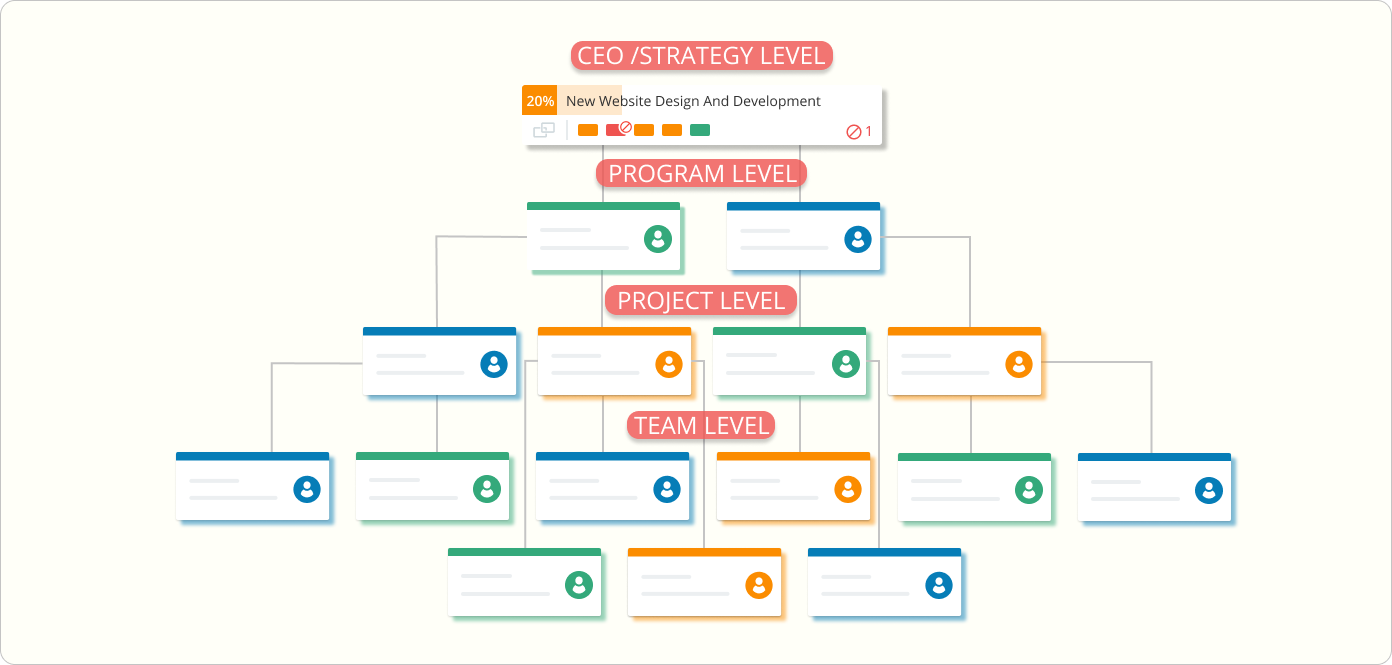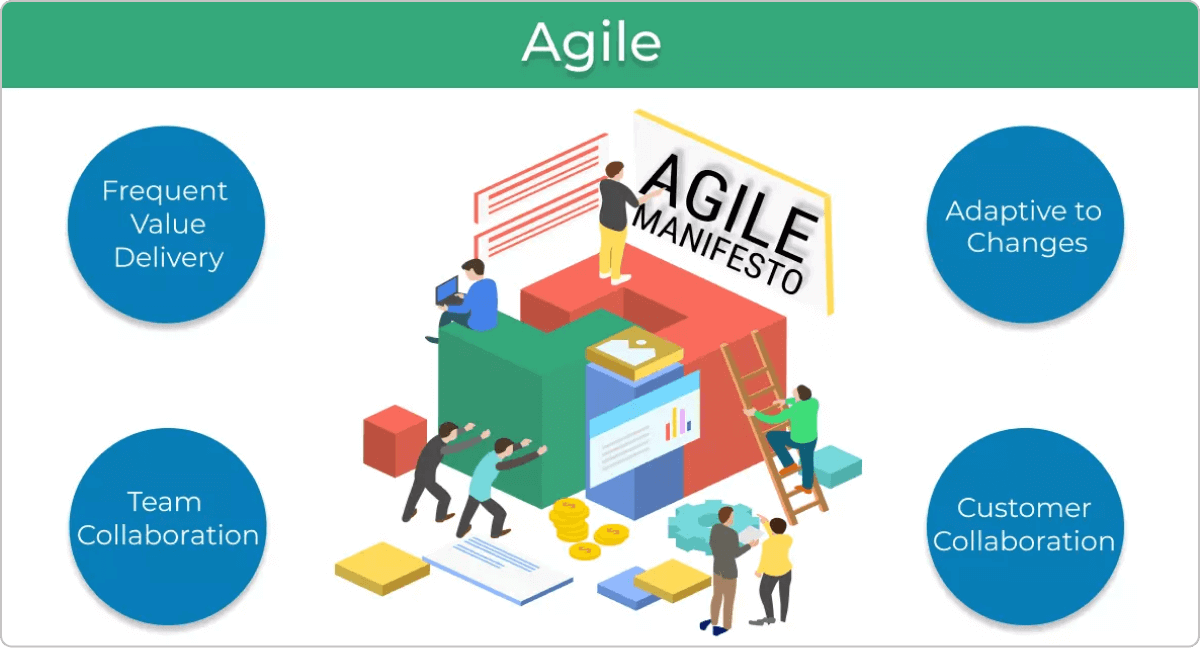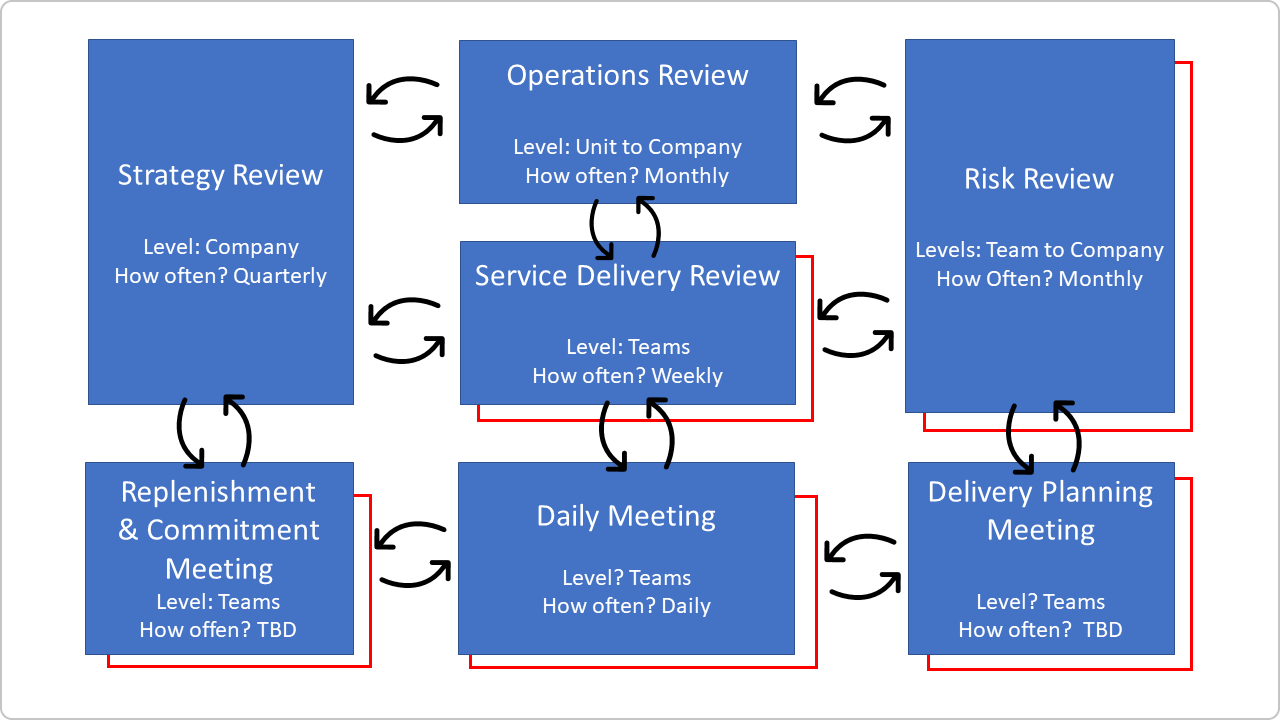Did you know that the United States Apollo space program by NASA (National Aeronautics and Space Administration) was initially perceived as a single project and not a program? The large-scale initiative had a clear and defined objective: to achieve a manned lunar landing. However, as the project progressed, it became evident that it was a much broader and more complex endeavor involving multiple missions, spacecraft, diverse technologies, extensive research, and scientific investigations, making it much more than just a single, isolated project.
The Apollo program’s legacy is a powerful example of the importance of recognizing when a project has transformed into a program, requiring a more comprehensive approach to planning, coordination, and resource management to accomplish ambitious goals.
Let’s explore some of the clear distinctions between project management and program management.
What Is Program Management?
Program management is the process of overseeing multiple related projects to achieve the strategic goals of an organization. It involves coordinating and aligning various individual projects, resources, and stakeholders to ensure successful strategy execution.
A program can be any collection of projects that, combined, should deliver outcomes that benefit the organization and align with the overall business strategy. The development and launch of a new drug can be an example of a program. Such a program would consist of various projects focusing on different aspects of the drug development process.
The importance of program management lies in its ability to optimize resource utilization, enhance collaboration, and maintain a focus on strategic goals. As a result of successful program management, organizations are better equipped to navigate complexities and drive sustainable growth in a structured way.
What Is Project Management?
Project management involves planning, organizing, and overseeing the execution of activities to deliver a specific output within constraints such as time, budget, and scope.
Projects are usually executed within a scheduled timeframe and can span from a few months to a few years, depending on their complexity. If we take the pharmaceutical example, gathering and analysis of patients’ symptoms can be a project on its own, contributing to the development of the new drug.
Project management allows to improve efficiency, minimize risks, enhance communication and collaboration, and deliver successful deliverables. Ultimately, project management processes empower organizations to deliver the desired customer value in a controlled way.
Program Management vs. Project Management: Key Differences
Program management aims to maximize the benefits of a group of related projects that would have an impact on the business objectives. Project management, on the other hand, is focused on delivering a specific output within the program. Here’s a more granular distinction between the two processes.
-
Focus: Program management focuses on the coordination of several interconnected projects, whereas project management's primary focus is on specific output.
-
Scope: Projects might have a specific scope that aims to deliver a result and drive the focus in the same direction from the project’s initiation to its completion. Programs, on their part, have a much broader scope and reach where the focus is on efficiently managing the projects that bring the highest value out of strategic initiatives.
-
Goals: Program management seeks the execution of several related projects, collectively working towards achieving the organizational long-term strategy, while project management aims to complete a single initiative within scope, timeframe, and budget.
-
Components: A program consists of multiple projects or project portfolios envisioning the organization’s strategic direction, whereas project management handles individual projects and initiatives driving the project to its completion.
-
Roles: Program managers focus on long-term business goals, while project managers seek specific short-term deliverables. Furthermore, program managers are responsible for overseeing a group of projects and defining interdependencies, while project managers are involved in individual projects.
-
Results: Successful program management creates outcomes that directly impact organizational development, such as ROI or digital transformation to bring long-term benefits. Project management, on the other hand, helps drive customer satisfaction with concrete deliverables or output, cost-efficiency, etc.
| Program Managers |
Project Managers |
| Define clear outcomes for the program |
Seek concrete project output |
| Review and evaluate programs supporting a long-term strategy |
Oversee and track the execution of individual projects |
| Prioritize program initiatives |
Translate strategic goals into actionable ideas |
| Coordinate resource capacity allocation across the portfolio of projects |
Plan projects, including allocating resources, budget, tools, capacity |
| Communicate with a focus on maximizing long-term organizational value |
Communicate to align stakeholders with projects’ deliverables |
| Value-driven |
Focusing on deliverables, time-bound |
| Strategic focus |
Tactical focus |
How Agile Supports Program and Project Management?
Embracing Agile management has become a major trend sweeping through organizations and teams across various industries. The reasons behind this surge include enhanced cross-team and cross-functional collaboration, improved alignment of work priorities with strategic goals, and successful digital transformations. (Source: State of Agile Report).
Here’s how Agile practices can provide valuable support to program and project management:
1. Strategic Alignment: By incorporating Agile principles into program and project management, organizations can foster a more dynamic, flexible, and strategically aligned approach to project execution. This synergy allows them to stay responsive to changing business environments and ensure that projects contribute to the organization's long-term strategic goals.
 Aligning strategic goals to program, project management, and team-level execution
Aligning strategic goals to program, project management, and team-level execution
2. Flexibility and Adaptability: Agile methodologies emphasize flexibility and adaptability, allowing teams to respond adequately to changing demands and priorities effectively. In program and project management, requirements may evolve during the project, and Agile practices enable teams to adapt and deliver value in increments.
The Agile approach to project management allows for continuous feedback and adjustments, ensuring that projects remain aligned with changing business needs and customer expectations. Moreover, integrating Agile practices into program management uncovers a host of additional organizational benefits. This includes discovering new capabilities, achieving cost reductions, improving internal processes, and more. The Agile approach becomes a catalyst for unlocking further advantages and optimizing program outcomes.
 The four Agile Manifesto values
The four Agile Manifesto values
3. Collaboration and Communication: Agile practices encourage frequent and transparent communication across different organizational levels. Daily stand-up meetings, iteration reviews, and retrospectives provide opportunities for stakeholders and team members to be actively involved in the project's progress. By fostering strong stakeholder engagement, Agile practices lead to better decision-making, improved project outcomes, and higher stakeholder satisfaction.
 Opportunities for review meetings on strategic and operational levels
Opportunities for review meetings on strategic and operational levels
4. Continuous Improvement: Agile practices encourage continuous improvement through regular reviews, where teams reflect on what worked well and what can be enhanced. This culture of continuous improvement supports the refinement of program management processes and ensures ongoing alignment with strategic goals.
We offer the most flexible software platform
for outcome-driven enterprise agility.
In Summary
While program management seeks to optimize the organizational benefits from a number of related projects, project management emphasizes the importance of specific deliverables within known constraints. The two processes differ in terms of the following:
- Focus: In terms of focus, program managers are strategy-focused, while project managers are tactic-oriented.
- Scope: Scope-wise, program management is concerned with the execution of related projects supporting the long-term strategy, while project management oversees the execution of individual projects.
- Goals: The goal of successful programs is to align with the C-level goals, whereas successful projects can be single initiatives completed within scope, timeframe, and budget.
- Roles: In terms of roles and responsibilities, program managers oversee, coordinate and facilitate communication regarding program execution, while project managers plan project execution, including allocation of budget, resources, and talent.





 Aligning strategic goals to program, project management, and team-level execution
Aligning strategic goals to program, project management, and team-level execution The four Agile Manifesto values
The four Agile Manifesto values Opportunities for review meetings on strategic and operational levels
Opportunities for review meetings on strategic and operational levels


